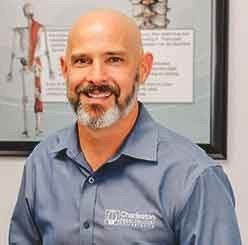
How Can You See Nerve Damage?
Nerve damage can cause a wide array of symptoms throughout the body. It can cause bodily disfunctions, muscle weakness, numbness, dizziness, tingling, burning, and balance issues among other things. With over 100 different types of nerve damage, so many different things can go wrong and symptoms you have may not be the same as someone else.
One person may experience chronic migraines while another experiences paralysis. It all depends which nerves are damaged and how severe it is. This means it’s important that if you feel you may have nerve damage or have been injured in some way that could cause nerve damage to be checked right away before it becomes worse as there is a chance for nerves to repair themselves.
Can you see nerve damage in an MRI/CBCT?
MRI, Magnetic Resonance Imaging, scans can show signs of nerve damage as it is sensitive to changes in bone structure and cartilage from injury, aging, or disease. MRI scans are accurate for assessing soft tissue structures and use a magnetic field to acquire the image rather than using radiation.
CBCT, Cone Beam Computed Tomography, is also effective in showing nerve damage due to its cutting-edge structural imaging that makes a highly detailed and accurate 3D image of the patient’s spine. This allows the chiropractor to efficiently identify issues with the upper cervical spine.
Can you see a pinched nerve on a CT/CBCT scan?
CT, Computed Tomography, scans use x-rays and a computer to make detailed images of the spine and its nearby structures. These provide good detail of the spine’s placement and how a misalignment is applying pressure.
Because of the detail the cone beam computed tomography scan gives, it can easily pick up details of a pinched nerve as well. Both are great ways of seeing if you have a pinched nerve, where, what it can be affecting, and how severe it is.
What causes pinched nerve in neck?
A pinched nerve is caused by a compression that is placed on the nerve. This happens when the nerve is compressed between tissues such as tendon, bone, or ligament. The inflammation that arises from this pressure can cause pain and discomfort. Misalignments in the upper cervical spine, neck area, will cause this pinched nerve in the neck to happen. A misalignment may occur from any of the following:
-
Aging - Structural and functional changes related to the natural aging process and shift the position of the spine.
-
Repetitive motion - It is important to take breaks if you do a lot of repetitive motion during daily tasks or at work. Repetitive motion can cause vertebrae to slip out of their original position and pinch a nerve.
- Poor posture - Having poor posture can result in pinched nerves. Staying hunched over will put additional pressure on the neck and other areas of the spine.
- Sleeping in wrong position - Sleeping in the wrong position can move the vertebrae out of alignment. It is important to not sleep in awkward positions that could cause pressure on the neck area.
- Emotional stress - Emotional stress may cause blood pressure to rise and muscles to tense, which can cause the vertebrae to move from its position.
- Physical stress - This includes lifting heavy weights or overworking the body.
What should you not do before an MRI/CBCT?
Keep in mind that an MRI uses a magnetic field to process imaging. It is important to take off all jewelry as metal objects can be pulled and injure you inside of the MRI machine. Other things that may contain metals that you should keep in mind if you are expecting to have an MRI scan are some cosmetics, nail polish, hair products, sunscreens, and antiperspirants. It would be a good thing to let the professional who is taking the MRI scan know if you have any metal implants or tattoos in the area that will be in the scanner as well.
For the CBCT scan, it is advised to not wear any earrings, facial piercings, necklaces, hair clips, glasses, or hearing aids. Before your CBCT scan, the professional will usually ask you questions and tell you what you need to remove beforehand.
Can a cervical MRI/CBCT show MS?
MRI scans can reveal lesions, or telltale scars, on the brain or spinal cord and help in diagnosing multiple sclerosis. These scans help see the difference between old and newly formed lesions. However, MRI scans are not used alone to diagnose multiple sclerosis. Along with MRI scans, the medical professional may conduct a neurological exam to assess of the nervous system is working.
The neurological exam will test your cognitive abilities, motor function, balance, ability to feel temperature and sensations, and test your reflexes. They may evaluate how your 12 cranial nerves of your brain are working as will. These 12 cranial nerves affect your ability to smell, chew, see, swallow, among other things.
A CBCT scan may show signs of multiple sclerosis, but just like MRI scans, one cannot diagnose if you have multiple sclerosis on a scan alone. Usually if there are signs of multiple sclerosis on a scan, another test is conducted or ordered for the patient before a diagnosis is made.
Can you have MS and it not show up on an MRI/CBCT?
A very low percentage, about 5%, may have multiple sclerosis without brain lesions showing up on an MRI or CBCT scan. Although a professional can see signs of multiple sclerosis on a scan, it does not mean they can diagnose the patient based upon that one scan and usually another evaluation is needed.
If you believe you are having symptoms of multiple sclerosis or would like to be checked by a professional, we can help. MRI and CBCT scans can help detect signs of multiple sclerosis thanks to their detailed imaging and based upon your history and physical exam we can help you find the treatment you need.
We would like to invite you to accept our invitation for a free 15 minute phone consultation to speak with one of our upper cervical chiropractic doctors where you can ask any questions you may have and decide if an exam or care might be right for you.
If you are interested, you can call our office at (843) 225-5855.




Leave a comment